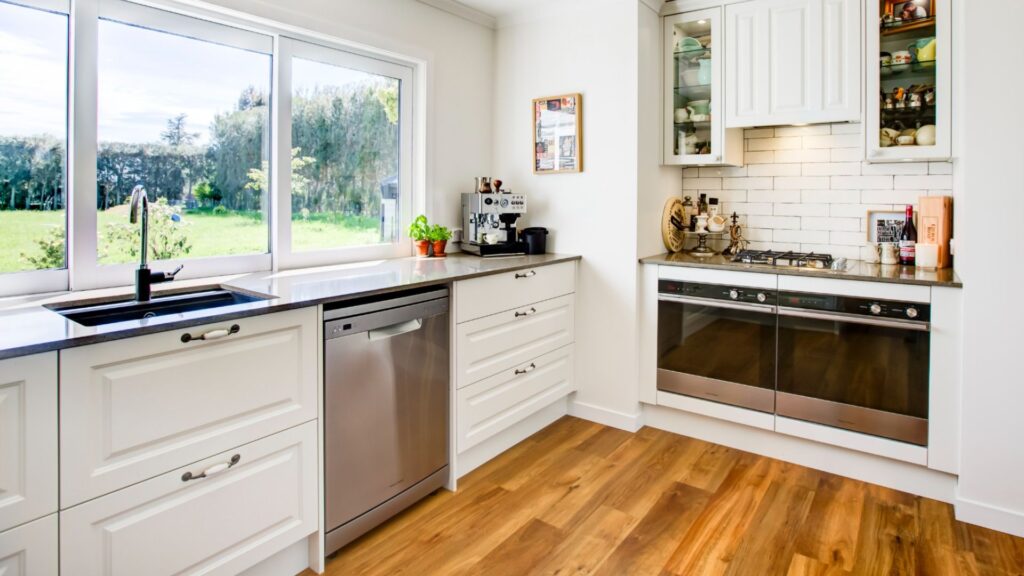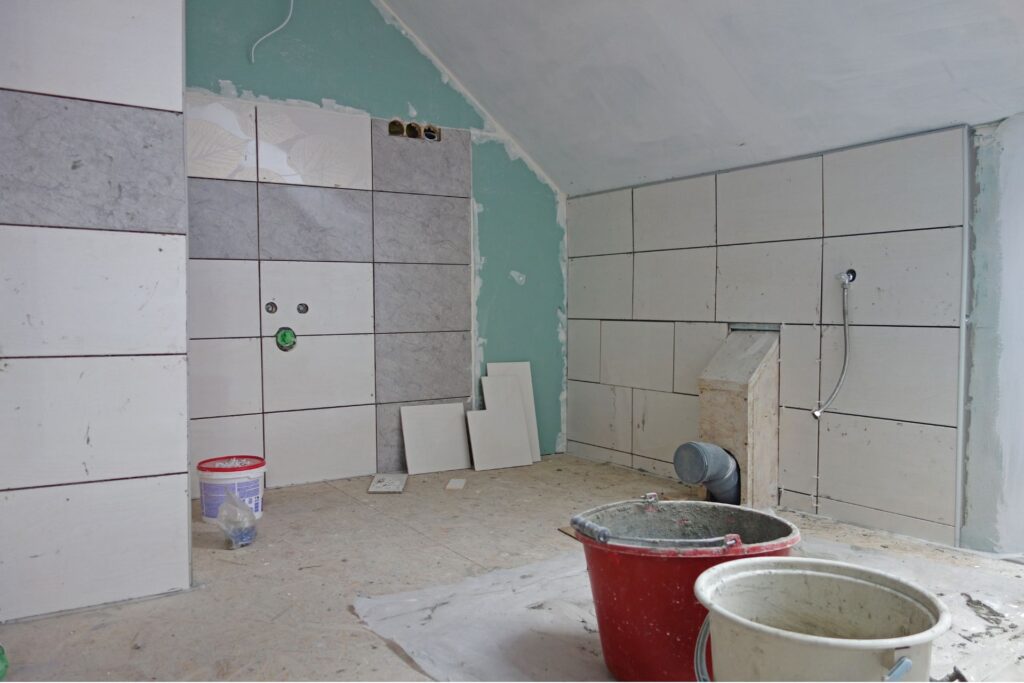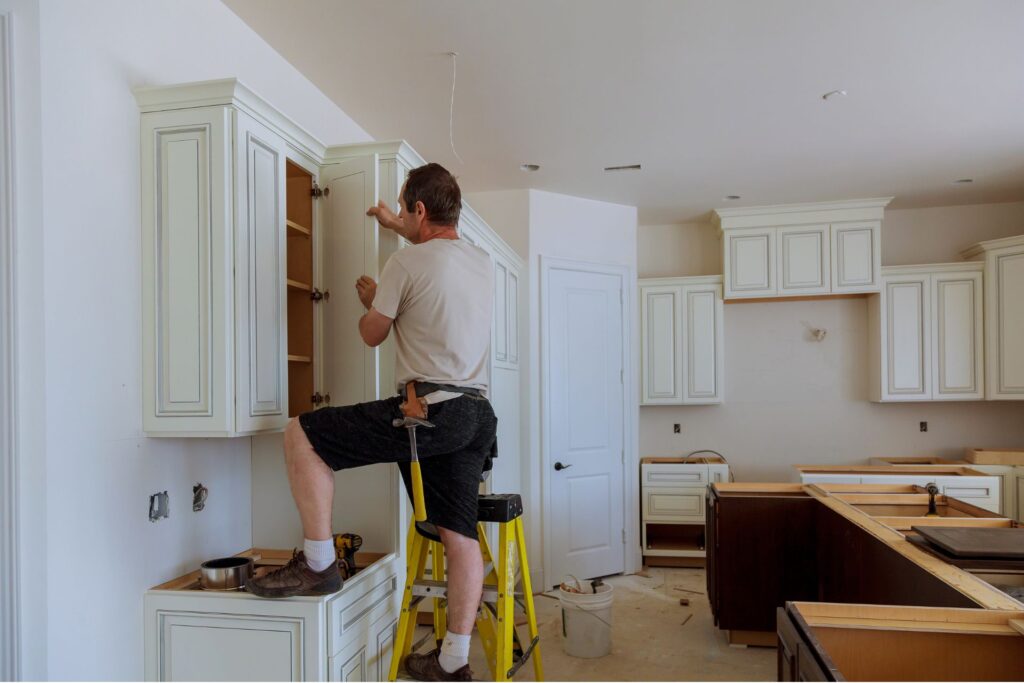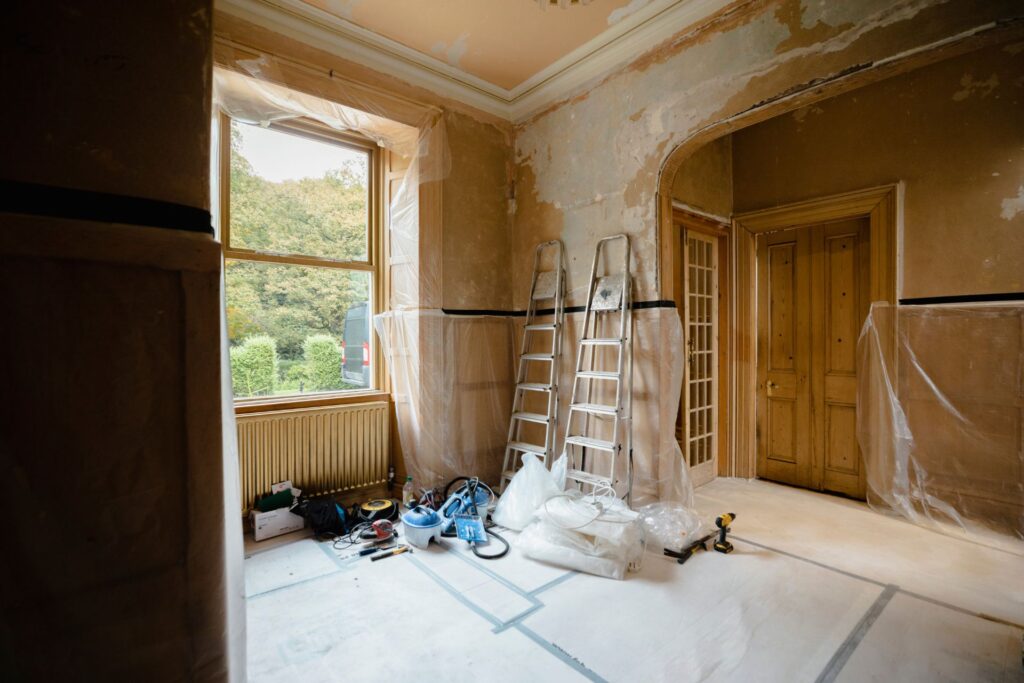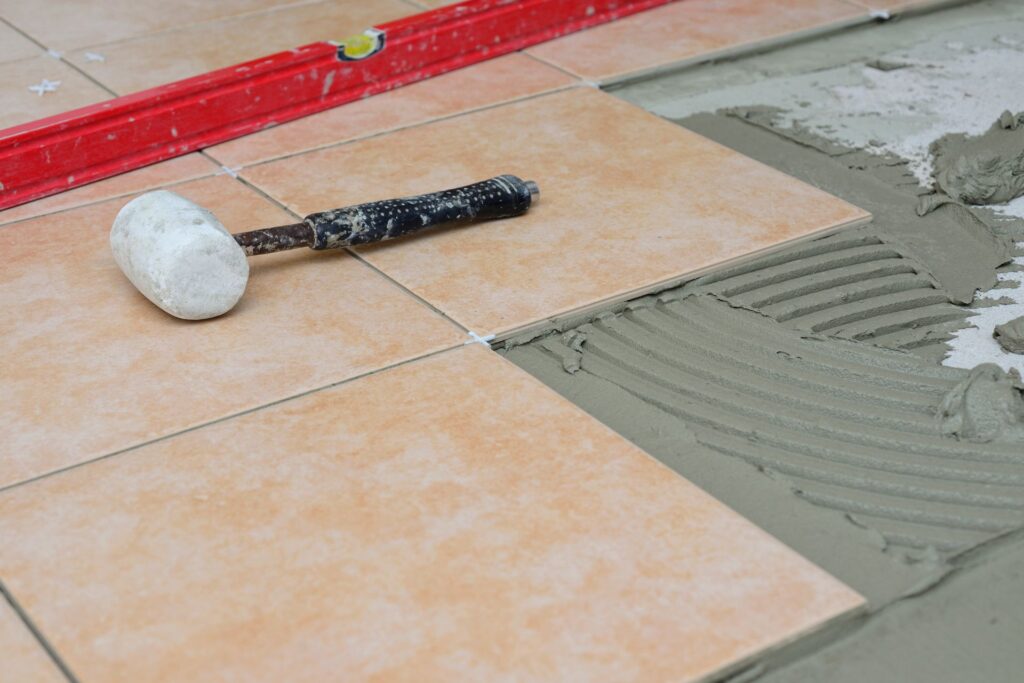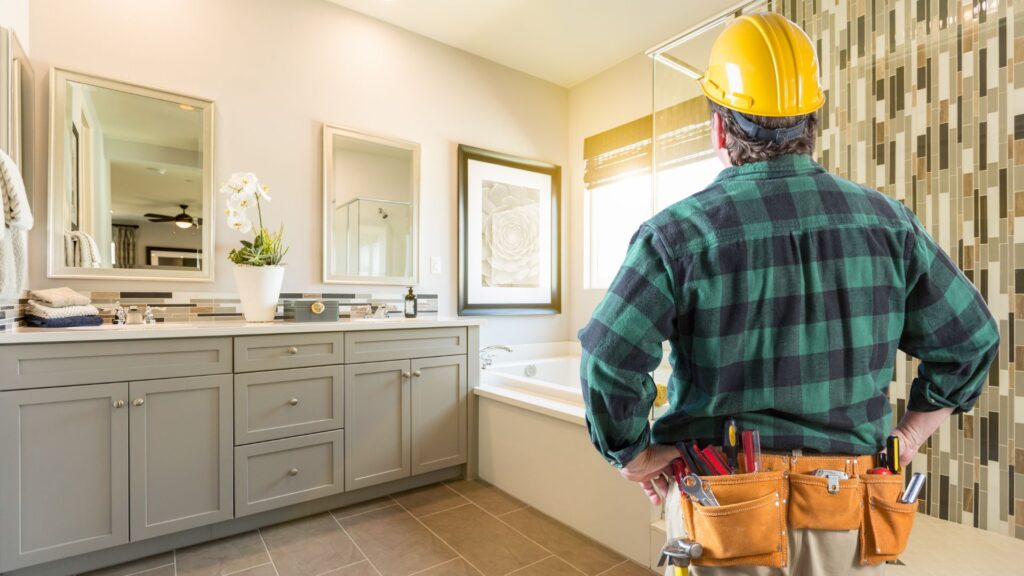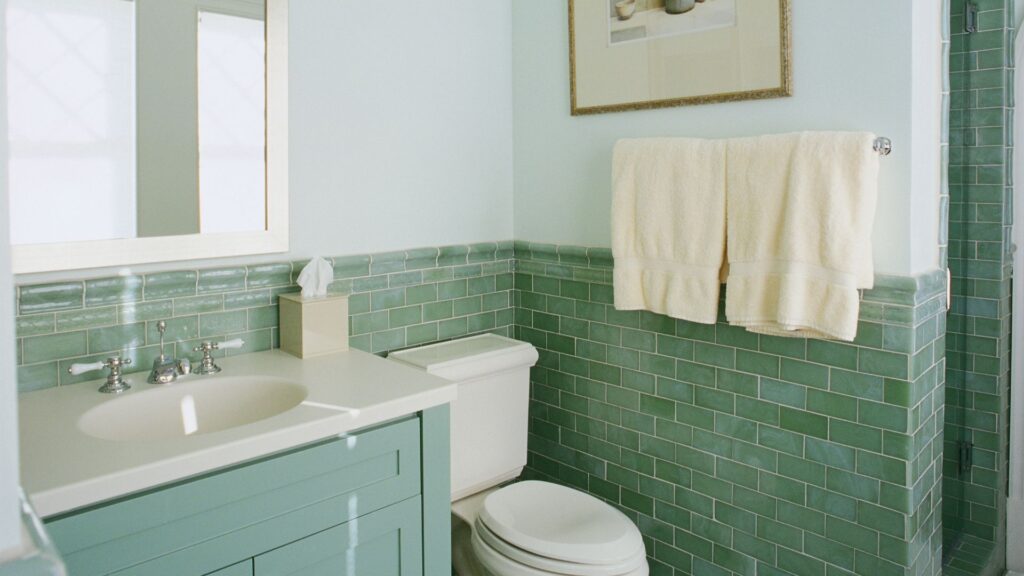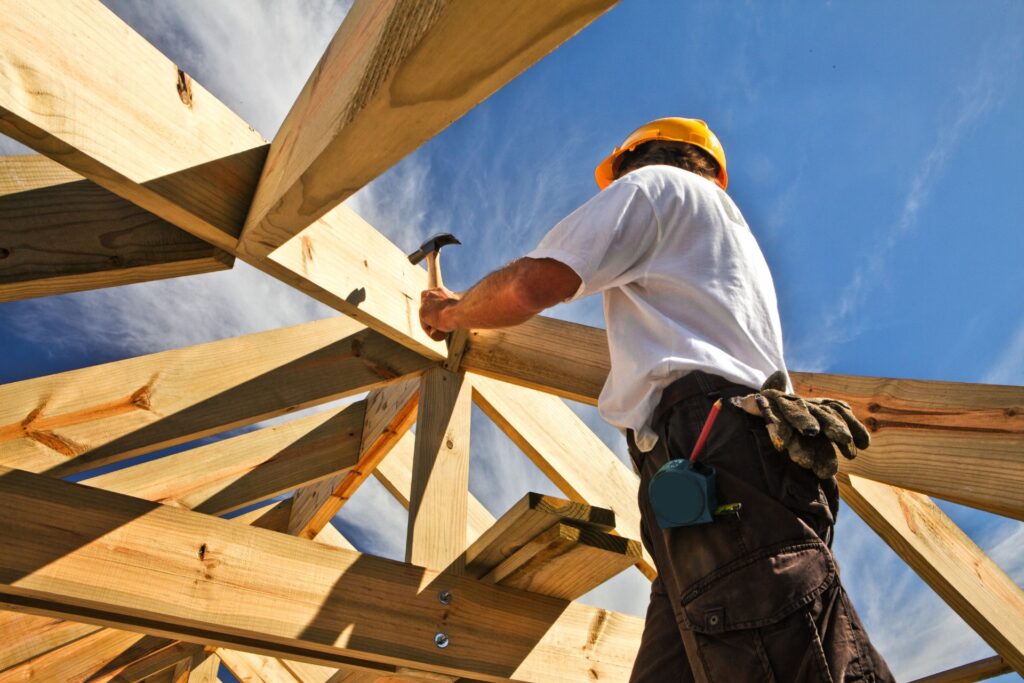Welcome to your ultimate guide on renovation costs in New Zealand, where we break down everything you need to know about pricing per square metre. Whether you’re dreaming of a kitchen upgrade, adding an extra room, or giving your bathroom a fresh look, understanding the costs involved is essential to sticking to your budget and avoiding surprises along the way. In this comprehensive guide, we’ll walk you through the average renovation costs across NZ, key factors that influence pricing, and tips to help you plan a cost-effective renovation that suits your needs. Let’s get started on making your dream home a reality!
On average, renovation costs in New Zealand range from $2,000 to $5,000 per square metre, depending on the scale of the project, materials chosen, and the location. Basic renovations start around $2,000–$3,000 per square metre, while high-end upgrades can go beyond $5,000 per square metre, influenced by factors like labour, permits, and project complexity.
Table of Contents
Understanding The Basics: What Does “Cost Per Square Metre” Mean?
Defining the Term: What Is “Cost Per Square Metre“?
When you’re planning a renovation or new construction project, one of the most common terms you’ll encounter is “cost per square metre.” This metric refers to the overall price associated with building or renovating a property based on the area being worked on, typically measured in square metres. The calculation includes the costs of materials, labour, and other associated expenses, making it a crucial figure for anyone aiming to estimate how much their project will cost.
For instance, the “cost per square metre” might cover expenses like:
- Materials: The cost of raw materials like wood, concrete, tiles, and fixtures.
- Labour: Wages for builders, plumbers, electricians, and other tradespeople.
- Overheads: Administrative and logistical costs associated with the project, like project management or permits.
- Miscellaneous costs: This can also cover other expenses such as waste disposal or specific tools and machinery.
The formula itself is relatively straightforward: you take the total estimated cost of the project and divide it by the total area (in square metres). This gives you the “cost per square metre,” which serves as a helpful benchmark when comparing different projects or quotations.
Why It Matters: The Importance of Cost Per Square Metre
Understanding the “cost per square metre” is key to managing your budget effectively. Whether you’re renovating your home, adding an extension, or building from scratch, this figure helps you estimate the overall financial commitment before breaking ground. It allows you to:
- Plan Your Budget: Knowing the approximate cost per square metre gives you a clear idea of how much you’ll need to allocate for your project, helping you avoid unpleasant surprises along the way.
- Compare Quotes: When receiving quotes from contractors, the cost per square metre can help you make apples-to-apples comparisons between different proposals, ensuring you’re not overpaying.
- Identify Savings Opportunities: By analyzing the breakdown of the cost per square metre, you might identify areas where you can cut costs—like opting for less expensive materials or minimizing custom work.
This metric can also highlight potential red flags early in the process. If a contractor’s cost per square metre is drastically lower or higher than others, it’s worth digging deeper to understand why. A lower price might signal inferior materials or shortcuts, while a higher price could indicate premium materials or added features.
NZ-Specific Factors: Understanding the New Zealand Market
In New Zealand, the construction industry operates under some unique conditions that can affect the cost per square metre. Labour costs, for instance, are generally higher compared to other countries due to skilled worker shortages, and strict building regulations mean that all work needs to meet specific compliance standards. Additionally, New Zealand’s relatively isolated geographic location can lead to supply chain constraints, particularly when it comes to importing building materials, which can drive up costs.
Because of these factors, the cost per square metre in New Zealand can sometimes be higher than what you might see in other countries. By understanding these influences, you can better anticipate fluctuations in price and make more informed decisions during the planning stages of your project.
Mastering the concept of “cost per square metre” is an essential step in planning any construction or renovation project. By understanding what it encompasses, why it’s important, and how local factors might affect it, you’ll be better prepared to manage costs and make informed choices.

Average Renovation Costs In New Zealand Per Square Metre (2024)
When considering a renovation project in New Zealand, one of the most important factors homeowners and property developers focus on is cost. Renovation costs can vary significantly across different regions and project types, making it essential to have a clear understanding of average prices. In 2024, renovation expenses continue to be influenced by factors such as material costs, regional demand, and labor availability. Let’s break down the expected costs per square metre for various types of renovations, along with regional insights to help guide your budget planning.
Overview of National Averages
New Zealand’s renovation market can be categorized into three broad price ranges, each reflective of the project’s scale, materials used, and the finish quality:
- Basic Renovations: These projects usually involve essential updates or minor improvements. You can expect costs to range between $2,000 to $3,000 per square metre. Basic renovations typically include refreshing surfaces like paint, new flooring, or basic kitchen and bathroom updates without major structural changes.
- Mid-range Renovations: For those looking for a more extensive upgrade, mid-range renovations will cost $3,000 to $4,500 per square metre. This level of renovation often includes more premium materials, additional fixtures, or semi-custom designs. It may involve changes to plumbing, electrical systems, and more comprehensive interior design.
- High-end Renovations: If you’re aiming for a luxurious transformation with top-of-the-line materials and finishes, expect costs to exceed $5,000 per square metre. High-end renovations often involve custom designs, structural changes, high-grade appliances, and materials sourced from top suppliers, resulting in a truly bespoke living space.
Breaking It Down by Region
Renovation costs in New Zealand also vary depending on your location. Regional demand, local labor rates, and transportation costs for materials all play a role in determining final renovation expenses. Here’s what you can expect across the country:
- Auckland: As New Zealand’s largest city and a hub of economic activity, Auckland commands some of the highest renovation costs. This is largely due to the high demand for building materials, skilled labor, and housing shortages. Homeowners in Auckland should expect to pay premium prices, with high-end renovations often pushing past the $5,000 per square metre mark.
- Wellington: While still on the higher end of the spectrum, Wellington’s renovation costs are generally slightly lower than those in Auckland. The capital city sees competitive pricing due to its healthy demand for housing, but construction and material costs remain more manageable, making mid-range projects slightly more affordable.
- Smaller Towns and Rural Areas: If you’re planning a renovation project in New Zealand’s smaller towns or rural areas, you can typically expect lower per-square-metre costs. Labor rates tend to be more affordable, and there’s often less competition for contractors. However, transport costs for materials may increase your budget if you’re located far from major suppliers, so it’s important to factor that into your overall renovation plan.
Contextual Advice for Homeowners and Developers
It’s important to remember that while these figures provide a good indication of average renovation costs, every project is unique. Several factors, such as the complexity of the design, the quality of materials, and unexpected structural changes, can influence the final cost. Before setting your budget, consider getting multiple quotes and consulting with professionals to get a more accurate estimate tailored to your specific project.
Additionally, prices can fluctuate throughout the year due to changes in material costs, shipping delays, or labor availability. Keeping these variables in mind will help you stay within budget and avoid unexpected expenses.
Understanding the average renovation costs per square metre in New Zealand can help you plan your renovation with greater confidence. By considering regional price differences and aligning your project with your budget, you can ensure a successful renovation that meets your expectations in both quality and cost.
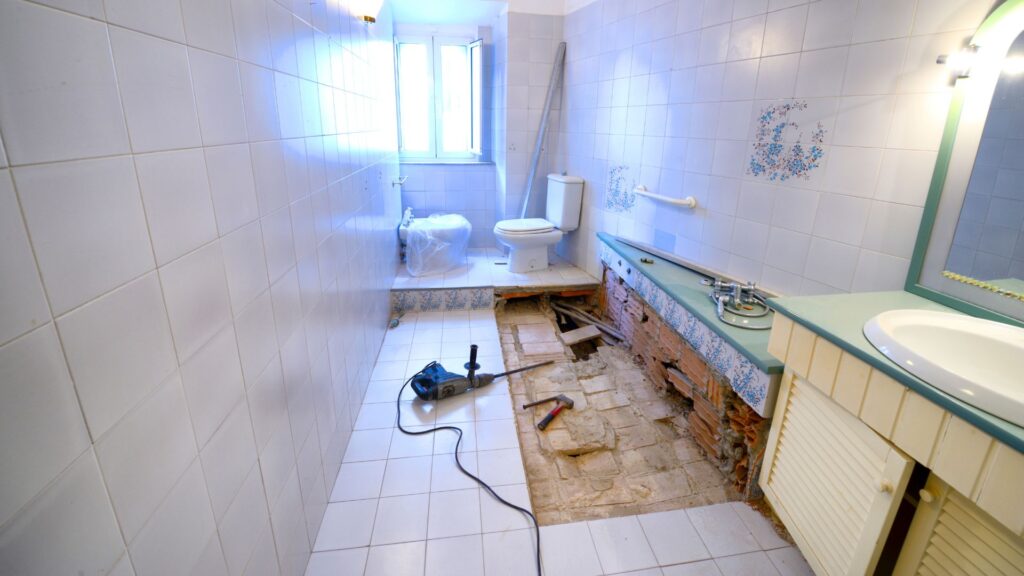
Key Factors That Affect Renovation Costs
When embarking on a renovation project, it’s essential to understand the key factors that can significantly influence your overall costs. By considering these variables early on, you can better plan your budget and avoid unexpected financial setbacks. Below is a detailed breakdown of the primary factors that impact renovation costs.
1. Type of Renovation
The type of renovation you are undertaking plays a substantial role in determining the total cost.
Kitchen Renovation vs. Bathroom Renovation
Kitchens typically come with a higher price tag per square metre compared to bathrooms. This is due to the complexity of installing appliances, high-end cabinetry, countertops, and the involvement of multiple plumbing and electrical elements. For instance, kitchen renovations often require advanced appliances, custom cabinetry, and high-end materials such as stone countertops, all of which add to the overall expenditure. Bathrooms, while still costly, often involve fewer materials and appliances but can become expensive due to plumbing and waterproofing needs.
Full House Renovation vs. Small Extensions
Larger renovations like a full-house remodel tend to benefit from economies of scale, meaning the per-square-metre cost might be lower than smaller projects. However, these large-scale renovations also bring added complexity. Structural changes, the need to rework plumbing and electrical systems, and the coordination of multiple tradespeople can all increase costs and extend timelines. On the other hand, smaller projects, such as extending a single room or adding a deck, may seem less intimidating but can be costly due to the concentrated use of premium materials or labor-intensive tasks.
2. Material Choices
The selection of materials will dramatically affect the cost of your renovation.
Premium vs. Budget-Friendly Materials
Choosing high-end materials, such as marble countertops, hardwood flooring, or custom cabinetry, can quickly elevate your budget. While these materials offer a luxurious finish and longer durability, they come with a steep price tag. On the flip side, there are budget-friendly alternatives like laminate countertops, vinyl flooring, and ready-made cabinetry, which can achieve a similar aesthetic at a fraction of the cost. However, it’s important to weigh the long-term durability and maintenance requirements of these lower-cost options.
3. Labour Costs
Labour is often one of the most significant components of renovation costs, and it can vary based on several factors.
Regional Labour Costs
Labour rates differ significantly depending on where you’re located. For instance, areas with higher living costs often see correspondingly higher labour rates. In regions with a high demand for skilled workers, costs for trades like electricians, plumbers, and carpenters can skyrocket, adding substantial expenses to your renovation.
Skilled Tradespeople
The complexity of the renovation also dictates the need for specialized tradespeople. Electricians, plumbers, and structural engineers often command higher rates due to the expertise required for their work. While you might save money on general labor for tasks like painting or demolition, more technical jobs come at a premium.
4. Permits and Compliance
In many regions, including New Zealand, adhering to building regulations and securing necessary permits can add both cost and time to your project.
Building Regulations and Council Consents
Many renovation projects require approval from local councils, especially if they involve structural changes, electrical work, or plumbing modifications. Obtaining these permits can add to your costs, not only through application fees but also by extending the timeline of your renovation. Compliance with building codes, especially in older homes, may necessitate upgrades to meet modern safety and quality standards, which can significantly increase the project’s overall budget.
Budgeting for Legal Requirements
It’s crucial to include the cost of permits and compliance in your initial budget. Failing to account for these requirements can lead to costly delays and potential fines, making it important to factor in both the time and financial aspects of meeting legal obligations.
5. Hidden Costs
Hidden costs are one of the most common reasons why renovation budgets balloon unexpectedly.
Unexpected Repairs and Upgrades
When renovating older homes, you may encounter hidden issues like outdated wiring, water damage, or structural weaknesses that must be addressed to meet current building codes. These unforeseen repairs can add thousands of dollars to your budget. Additionally, upgrading older systems, such as plumbing or electrical, to comply with modern standards can be more expensive than anticipated.
Structural Changes
While the surface changes of a renovation might be straightforward, structural changes often come with additional costs. For example, moving load-bearing walls or reinforcing foundations can require expert input and add to the complexity of the project, leading to higher expenses than initially estimated.
Renovation costs are influenced by various factors, from the type and scope of the project to the choice of materials, labor requirements, permits, and unexpected complications. To manage your budget effectively, it’s important to consider these key elements and plan accordingly. Whether you’re doing a minor bathroom update or a full-scale home remodel, understanding these cost factors can help you make informed decisions and avoid financial surprises.
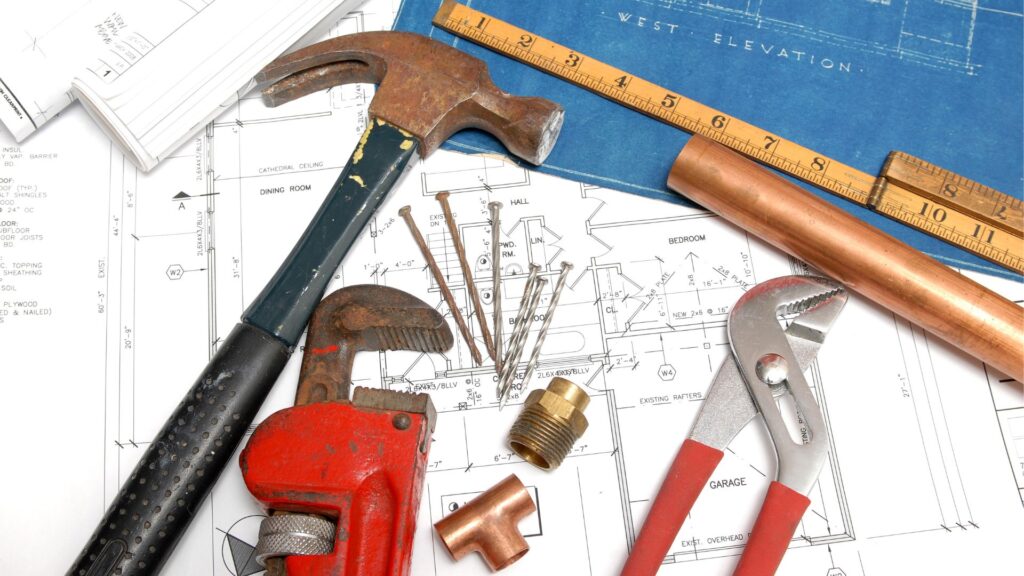
Breakdown Of Renovation Costs By Room Or Area
Renovating your home is a big investment, and it’s essential to understand how much it might cost, room by room, so you can plan and budget effectively. Whether you’re upgrading your kitchen, bathroom, or considering a home extension, knowing the average costs and the factors that influence them will help you make informed decisions. Let’s break down the renovation costs by room or area, specifically tailored to New Zealand homes.
1. Kitchen Renovation Costs in NZ
- Average cost per square metre: $3,000–$6,000
- Key cost drivers:
- Custom cabinetry: Bespoke kitchen cabinets often drive up the cost due to the complexity and materials used.
- High-end appliances: Premium brands or energy-efficient models can significantly increase your kitchen’s overall cost.
- Plumbing and electrical work: Kitchens often require extensive plumbing for sinks and dishwashers, as well as rewiring for lighting and appliances, adding to the cost.
To keep your kitchen renovation budget-friendly, consider choosing mid-range materials. For example, refinishing or repainting existing cabinetry instead of replacing it can save thousands. Flat-pack kitchens are another affordable alternative, offering a modern look at a lower cost.
2. Bathroom Renovation Costs
- Average cost per square metre: $2,500–$5,000
- Cost factors:
- Tiling: Both the material and installation can vary greatly in price. Natural stone or designer tiles will cost more than ceramic options.
- Fixtures: Bathtubs, toilets, sinks, and vanities can range from budget-friendly to luxurious, depending on the brand and materials.
- Waterproofing and plumbing: These are essential to a well-functioning bathroom, and cutting corners here can lead to costly repairs down the line.
To save on bathroom renovation costs, consider using high-quality fixtures but opt for more affordable tiles. Keeping the plumbing in the same location will avoid expensive relocations of pipes and drainage, significantly reducing costs.
3. Living Room & Bedroom Renovations
- Average cost per square metre: $1,500–$3,000 (generally less complex than kitchens or bathrooms)
- Primary cost drivers:
- Flooring: Whether you choose carpet, hardwood, or laminate, the material and installation costs vary significantly. Hardwood tends to be more expensive but adds a premium look and feel to your home.
- Painting and plastering: A fresh coat of paint can do wonders for your living spaces. High-end paints or specialty finishes can drive up costs.
- Lighting and electrical: Updating light fixtures or adding new outlets and switches can also influence the total cost.
For budget-conscious homeowners, cosmetic upgrades like new paint, light fittings, or a simple change of furniture can transform these spaces without requiring major structural changes. These smaller updates can make a big impact for a fraction of the cost.
4. Home Extensions and Additions
- Average cost per square metre: $2,500–$4,500+
- Factors to consider:
- Foundations and roofing: When extending your home, especially for a ground-floor extension, you’ll need to consider the cost of laying new foundations and roofing. This can significantly increase costs.
- Structural changes: Altering the existing structure, such as removing walls or extending beyond your home’s current layout, will also drive up expenses.
- Single-storey vs. double-storey: Double-storey extensions are often more expensive due to the added complexity, but they can offer more space without taking up valuable land.
If you’re looking for a cost-effective way to add more space, consider pre-fabricated designs or modular homes. These can be quicker and cheaper to build, and they offer flexibility in design while minimizing the disruption to your existing home.
Renovation costs in New Zealand can vary widely based on the room or area you’re focusing on. Kitchens and bathrooms are typically more expensive due to the complexity of plumbing, electrical, and custom finishes. Living rooms and bedrooms are often less costly, but flooring, lighting, and painting can still influence the final price. Home extensions, while adding significant value and space, can be the most expensive, depending on the scope and structure. By understanding these cost breakdowns, you can prioritize your renovations and manage your budget effectively.
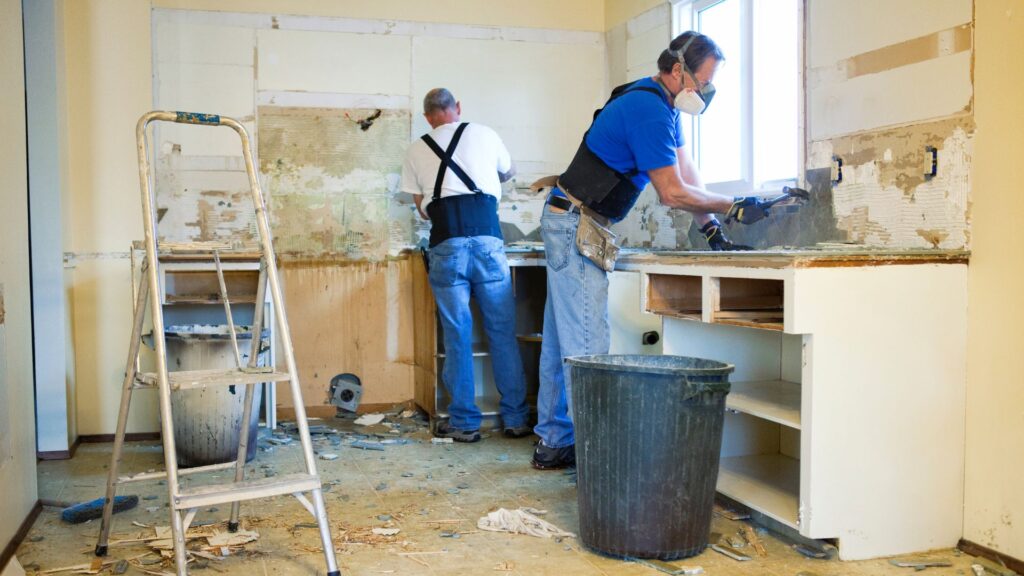
Cost-Saving Tips For Renovations
Renovating your home is a big investment, but there are several ways to keep costs under control without sacrificing quality. If you’re smart about your approach, you can achieve your dream renovation while staying within budget. Here are some valuable cost-saving tips to consider:
1. DIY Where Possible
One of the easiest ways to cut costs is by doing some of the work yourself. While you should leave specialized tasks like electrical work or plumbing to professionals, there are several DIY-friendly projects that you can handle without needing expert skills. For example, painting walls, basic landscaping, and performing small repairs are all areas where homeowners can make a big impact with minimal expense. Taking on these tasks yourself eliminates the need for hiring contractors for every aspect of the renovation, significantly reducing your labor costs.
2. Source Materials Wisely
Another major way to save is by sourcing your materials carefully. Shop around and compare quotes from multiple suppliers before making any purchases. You might find a huge price difference between stores. Additionally, don’t overlook the option of using recycled or repurposed materials, which can often be much cheaper and are also environmentally friendly. Salvaged items from demolition sales or second-hand markets can give your renovation a unique character. Timing your purchase during sales or clearance events can also help reduce the cost of big-ticket items like flooring, appliances, or cabinetry.
3. Plan Ahead
Renovation projects often go over budget when they aren’t properly planned out. Take the time to map out all aspects of your renovation well in advance. This includes not only deciding on the design and materials but also considering the timing. Rushed jobs tend to cost more, as last-minute decisions may lead to higher labor charges or premium material costs. If possible, schedule your renovation during off-peak seasons. Builders and contractors are often less busy in the colder months, which means they might offer better rates or be more willing to negotiate on pricing. Planning ahead also prevents unexpected delays that could stretch your budget.
4. Avoid Scope Creep
Scope creep is a common budget-buster in renovation projects. It happens when you start adding extra tasks and changes that weren’t part of your original plan. These additions might seem minor at first, but they can quickly add up in terms of both time and money. To prevent this, define your renovation goals clearly from the outset and stick to them as much as possible. Keep track of your progress, and be cautious about making impulsive decisions mid-project. By staying focused and avoiding unnecessary changes, you’ll protect your budget from spiraling out of control.
By implementing these cost-saving strategies, you can ensure that your home renovation project is not only successful but also budget-friendly. Taking on some DIY tasks, being smart about where and when you buy materials, and avoiding scope creep are just a few ways to make your dream renovation more affordable. Planning carefully from the start will save you both time and money, ensuring your home improvement project runs smoothly without breaking the bank.
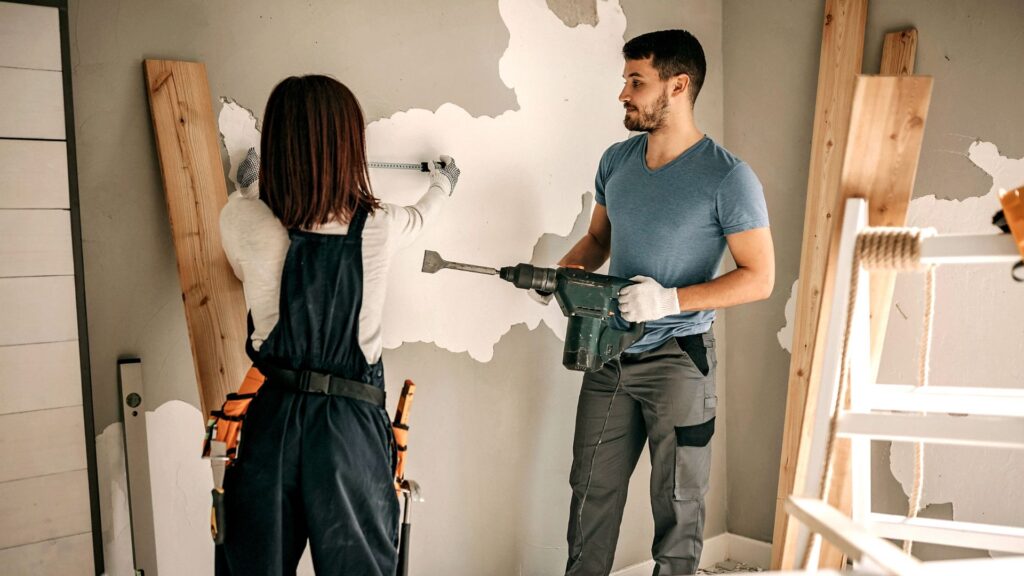
How to Budget For A Renovation In New Zealand
Renovating your home in New Zealand is an exciting opportunity to refresh your space or add value to your property, but managing the financial aspect is crucial. Proper budgeting can help ensure that your renovation project goes smoothly without unwelcome surprises along the way. Here’s a guide to help you budget effectively for a home renovation in New Zealand.
Setting a Realistic Budget
The first step in any renovation project is to establish a realistic budget. Before jumping into design plans or choosing materials, it’s essential to calculate how much you can afford to spend. Here’s how to set a practical budget:
- Base Budget Calculation: Start by determining the scope of your renovation. This involves understanding the size of the area you’re renovating and the complexity of the work. Are you just updating fixtures and finishes, or are you planning structural changes? Research typical costs for similar projects in New Zealand, keeping in mind that material costs can vary depending on quality and availability. For example, a basic kitchen renovation might cost between $20,000 and $40,000, while more extensive renovations can go higher.
- Contingency Fund: Renovations rarely go exactly as planned. Unforeseen issues such as hidden structural damage, plumbing issues, or even delays in material delivery can increase costs. To avoid running out of money mid-project, always allocate a contingency fund. Most experts recommend setting aside 10-20% of your total renovation budget to cover any unexpected expenses. This buffer ensures that you’re prepared for surprises without derailing your project.
Seek Multiple Quotes
Once you’ve determined your budget, it’s time to start gathering quotes. This step is essential to ensure you’re getting competitive pricing and to help you avoid overpaying for services.
- Multiple Quotes Are Key: Reaching out to multiple contractors allows you to compare prices, services, and timelines. When requesting quotes, provide as much detail as possible to ensure accuracy. The quotes should include labor costs, material costs, and any additional fees. Don’t just go with the cheapest quote—look for contractors with a reputation for quality work and reliability.
- Comparing Prices: It’s important to understand why some quotes may be higher than others. In some cases, lower quotes may cut corners on materials or workmanship, leading to future repair costs. On the other hand, higher quotes might reflect better quality or a more experienced team. Balance price with quality by checking references, reading reviews, and asking for examples of completed projects.
Work with Professionals
While doing it yourself (DIY) may seem like a cost-saving option, hiring professionals is often the smarter choice for more complex renovations. Here’s why professional help can ultimately save you money:
- Avoid Costly Mistakes: Tackling certain renovation tasks on your own—like painting or landscaping—might save a few dollars, but more complex jobs (like electrical, plumbing, or structural work) should be left to the professionals. Attempting these tasks without proper expertise can lead to costly mistakes that require fixing, driving up your overall renovation costs.
- Leveraging Expert Knowledge: Professionals, especially those with experience in New Zealand’s building standards and regulations, can help ensure your renovation is compliant with local codes. This expertise helps avoid legal headaches and ensures that your renovation adds real value to your property. Moreover, professionals can provide advice on the best materials for New Zealand’s climate, helping you choose options that are both durable and energy-efficient.
Renovating in New Zealand can be a rewarding experience, but it requires careful planning and budgeting to ensure success. By setting a realistic budget, getting multiple quotes, and working with experienced professionals, you can keep your project on track financially and avoid costly surprises. Remember, proper preparation is the key to turning your renovation dream into a reality.

Getting The Most Value For Your Money: ROI On Renovations In NZ
Renovating your home can significantly improve your quality of life, but it’s also a strategic investment. Homeowners across New Zealand often look for ways to enhance the value of their property, especially if they plan to sell. But which renovations offer the highest return on investment (ROI)? Let’s break it down to ensure you’re making the most informed decisions with your renovation budget.
Which Renovations Add the Most Value?
1. Kitchens and Bathrooms
If you’re considering where to spend your renovation dollars, the kitchen and bathroom are often the safest bets. These two areas consistently provide some of the highest returns when it comes time to sell. Why? Because potential buyers know that these are the rooms they’ll use most often, and modern, functional kitchens and bathrooms make a home far more attractive.
A well-designed, updated kitchen can be a major selling point. This could involve installing modern cabinetry, upgrading to energy-efficient appliances, or even expanding the layout for an open-concept design. Similarly, bathrooms that offer sleek, contemporary fixtures, plenty of storage, and a spa-like feel can significantly boost your home’s appeal.
2. Adding a Bedroom
Adding an extra bedroom is another renovation that can dramatically increase a home’s market value, particularly if you convert unused space like an attic or basement. Homes with more bedrooms naturally cater to larger families and command a higher price point, making this an excellent way to invest in your property.
3. Upgrading Outdoor Spaces
In New Zealand, where outdoor living is a big part of the lifestyle, enhancing your garden, patio, or deck can also offer a solid return. With people prioritizing outdoor spaces for entertaining and relaxation, a well-landscaped garden or a new deck for BBQs can make your home much more appealing. By creating a seamless indoor-outdoor flow, you could see significant gains in your home’s value.
Renovations That May Not Add Value
While some renovations can significantly increase your home’s value, others may not have the same impact—especially if they’re too personalized or over the top.
1. Over-Personalised Renovations
Personal style is important, but it’s wise to avoid renovations that may not appeal to the broader market. Unusual paint colors, highly specific design choices, or features that reflect a niche taste could turn potential buyers off. What feels like an expression of your personality might feel like an additional cost to a buyer, who may have to invest in altering the space to suit their preferences.
2. Overly High-End Finishes in Modest Areas
Investing in luxury materials or high-end finishes might seem like a surefire way to add value, but in reality, this can backfire. If your home is in an area where the average property prices are more modest, over-capitalizing by installing ultra-high-end features can reduce your ROI. Buyers may not be willing to pay a premium for top-of-the-line finishes, especially if the neighborhood doesn’t support that level of investment.
When it comes to home renovations in New Zealand, the key is to balance functionality, appeal, and cost. Focus on upgrades that will not only improve your living experience but also add tangible value when it’s time to sell. By investing wisely in kitchens, bathrooms, additional bedrooms, and outdoor spaces, you’ll maximize your return while avoiding the pitfalls of over-personalisation or high-end overspending. With smart planning, your renovations can give you the best bang for your buck!
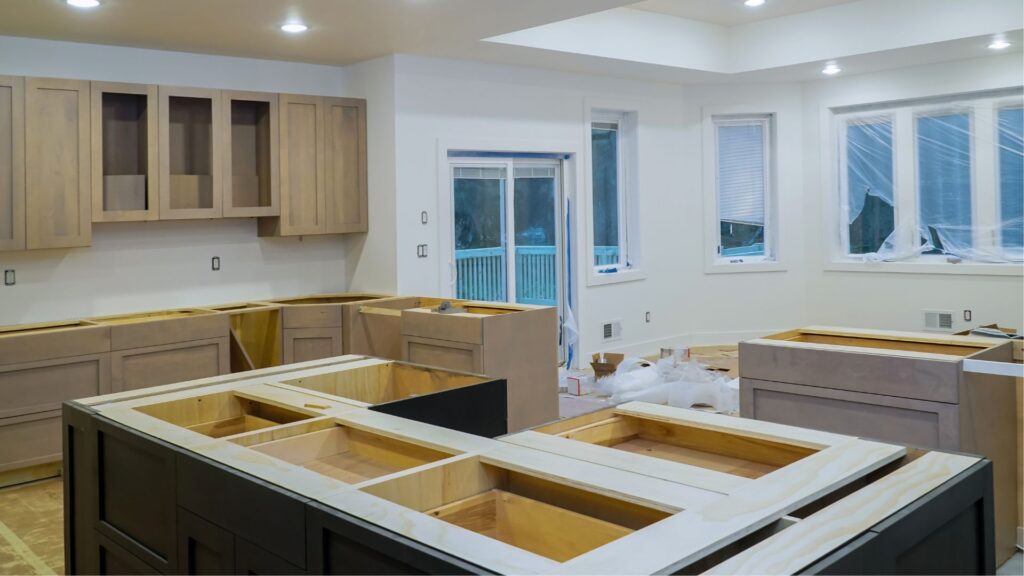
FAQs: About Renovation Costs NZ Per Square Metre
What is the average cost of renovation per square metre in New Zealand?
On average, renovation costs in New Zealand range between $2,000 and $5,000 per square metre, depending on the scope of the project, materials used, and location. Basic renovations are usually at the lower end of the range, while high-end renovations or extensions tend to cost more.
What factors influence renovation costs in NZ?
Several factors impact renovation costs, including the type of renovation (kitchen, bathroom, etc.), the quality of materials, labour costs, the region you’re in, and whether any council permits or compliance checks are required. Hidden costs such as unforeseen repairs or code upgrades can also increase the overall price.
How much does a kitchen renovation cost per square metre?
A kitchen renovation in New Zealand typically costs between $3,000 and $6,000 per square metre. The price depends on factors like the quality of cabinetry, countertops, appliances, and plumbing or electrical work.
Is it cheaper to renovate or build new in New Zealand?
Building new is often more expensive than renovating, especially if you’re only updating or extending part of an existing home. However, if your home requires major structural changes or compliance upgrades, it may be more cost-effective to rebuild in the long run.
Do I need a building consent for renovations?
In New Zealand, certain renovations require building consent, especially if they involve structural changes, plumbing, or electrical work. Always check with your local council to determine if your project requires consent, as fines and delays can result from non-compliance.
How can I save money on my renovation project?
To save money on renovations, consider doing minor tasks yourself (such as painting or landscaping), sourcing materials locally or during sales, and avoiding scope creep by sticking to your original plan. Getting multiple quotes from contractors can also ensure competitive pricing.
How long does a typical home renovation take?
The time frame for a renovation varies based on the size and complexity of the project. Small renovations like bathrooms or kitchens may take a few weeks, while larger projects like home extensions can take several months. Be sure to factor in time for council consents and potential delays.
What areas of the home add the most value through renovation?
Kitchens and bathrooms typically offer the highest return on investment when it comes to renovations. Adding an extra bedroom or improving outdoor spaces can also significantly boost the value of your home, especially when done thoughtfully and in line with local market demand.
Can I live in my house during renovations?
It depends on the scale of the renovation. For smaller projects, like a single room, living at home is usually manageable, but for larger or more disruptive renovations (like major structural changes), it may be more convenient to find temporary accommodation.
How should I budget for unexpected renovation costs?
It’s a good idea to set aside an additional 10-20% of your overall renovation budget for unexpected costs, such as repairs or compliance upgrades. These costs often arise due to unforeseen structural issues or changes in project scope. Having a buffer will help ensure you stay within your overall budget.
Conclusion
In conclusion, preparing your renovation budget is crucial to ensuring a smooth and successful home transformation. On average, renovation costs in New Zealand can vary significantly per square metre, depending on several key factors such as the size of the project, the materials used, labour costs, and the complexity of the design. By understanding these cost drivers, you can make informed decisions and avoid unexpected expenses. It’s important to start planning early, set a realistic budget, and always obtain multiple quotes from local professionals to compare options. Ready to begin your renovation journey? Reach out to local experts today for an accurate, personalized quote and start turning your home renovation dreams into reality.
About the Author:
Mike Veail is a recognized digital marketing expert with over 6 years of experience in helping tradespeople and small businesses thrive online. A former quantity surveyor, Mike combines deep industry knowledge with hands-on expertise in SEO and Google Ads. His marketing strategies are tailored to the specific needs of the trades sector, helping businesses increase visibility and generate more leads through proven, ethical methods.
Mike has successfully partnered with numerous companies, establishing a track record of delivering measurable results. His work has been featured across various platforms that showcase his expertise in lead generation and online marketing for the trades sector.
Learn more about Mike's experience and services at https://theleadguy.online or follow him on social media:
